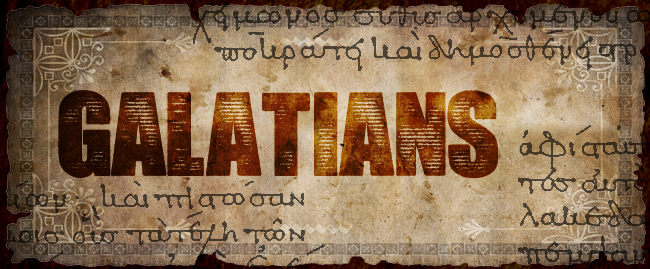This week we will be reading through Galatians 3:15-30. When Paul draws the distinction between the Law and the Gospel and the superiority of faith over the Law, the question necessarily arises as to why God gave the Law in the first place. This is the question Paul answers for us in the passage for this evening.
God counted Abraham righteous based on faith alone (Gen. 15:3) and promised Abraham that all the nations of the world would be blessed through him (Gen. 12:3). Four hundred thirty years later, Moses leads Abraham’s descendants out of Egypt and into the desert where the 613 Commandments contained in Genesis, Exodus, Leviticus, Numbers, and Deuteronomy are given. Approximately 1400 years thereafter, Jesus comes as the fulfillment of the original promise and sets aside the intervening obligations of the Law.
Paul says the intervening law (given by an angel through the intermediary of Moses, unlike the original promise given by God himself) was necessary because of “transgressions.” v.19. The Law has two functions in regard to transgressions. The first is to restrain people from committing bad acts in the world. Sometimes, we don’t kill, not because it’s the right thing to do, but because we are afraid of going to jail. The second use of the Law is spiritual and to reveal to us our sins and fallen condition. See, Rom. 7:14-25. The Law’s function, therefore, was to both preserve the promise of God with the physical descendants of Abraham until it could be fulfilled and to create a desire for the promises to be fulfilled. The Law quarantined the promise for almost 2,000 years until it could be fulfilled in Christ Jesus. A great exposition of the purpose of the law is Martin Luther’s commentary on these verses. I have attached the commentary if you want to dig deeper into this issue.
Paul also talks about the law as being our custodian/guardian/disciplinarian v.24. The Greek word used for custodian/guardian/disciplinarian is paidagogos (which is the root of the English “pedagogical”) and means a household slave who had charge of the life and morals of the boys of a family and supervised their education and discipline. Paul’s analogy is that the promise is made at the child’s birth, the teaching slave trains up the child, and when the child reaches adulthood fulfilling the promises, the teaching slave is now no longer needed. The Law had a purpose, and now that the purpose has been fulfilled, the Law is no longer needed. As Paul implies, Why would an adult go back under the authority of his childhood slave?
For tonight think about the purpose of the law. Romans 7 is a good place to start. Also, think about your identity and where you receive your identity. Finally, think through how Jesus overcomes both the law and our identities.
Dinner is at 6. The menu is fried rice. Discussion about 6:45. Compline at 8. Hope to see you here.
So I find it to be a law that when I want to do what is good, evil lies close at hand. For I delight in the law of God in my inmost self, but I see in my members another law at war with the law of my mind, making me captive to the law of sin that dwells in my members. Wretched man that I am! Who will rescue me from this body of death? Thanks be to God through Jesus Christ our Lord!
Romans 7:21-25a


Pingback: Ephesians 1:11-14, We, You, and Ours – Ancient Anglican
Pingback: The Gospel of Luke – Luke 16:1-17:10 – Faithfulness in Wealth – Ancient Anglican